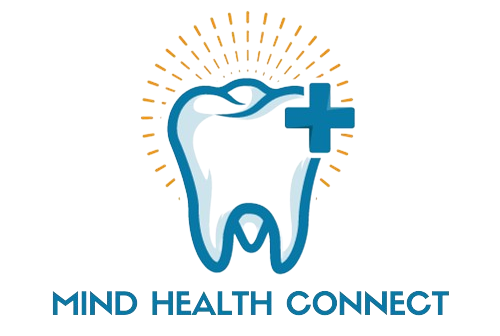Key Takeaways:
- Transcranial Magnetic Stimulation (TMS) is an innovative, non-invasive medical procedure utilising magnetic fields to target specific areas of the brain.
- TMS offers an alternative or complementary approach to traditional treatments, boasting unique advantages in precision and minimal invasiveness.
- TMS is generally safe, with minimal side effects. Real-life accounts and testimonials from patients provide valuable insights.
- TMS is making remarkable strides in alleviating depression, offering hope to individuals through transformative stories and data-backed results.
Transcranial Magnetic Stimulation, or TMS, is a cutting-edge medical procedure that has been gaining momentum in the healthcare field. This non-invasive therapy offers promising results for various conditions, particularly in the realm of mental health. In this article, we will delve deeply to answer the common question, “What is TMS?” We will explore how it works, its medical applications, safety, patient experiences, and much more.

How TMS Works
TMS involves the use of powerful magnetic fields to stimulate specific areas of the brain. It operates on the principle of electromagnetic induction, where a magnetic coil placed on the scalp generates a rapidly changing magnetic field. This magnetic field induces electrical currents in the brain, leading to the activation or inhibition of neurons. It’s a precise and targeted procedure that can influence brain function without surgery or invasive techniques.
Medical Applications
TMS has found its place in the medical world, with applications in treating a variety of conditions. It has shown remarkable efficacy in addressing depression, anxiety, and even neurological disorders. Researchers have been exploring its potential in pain management and its ability to induce brain plasticity.
TMS vs. Traditional Treatments
One of the fascinating aspects of TMS is its ability to complement or even replace traditional treatments. We’ll explore how TMS stacks up against established therapeutic methods, highlighting its advantages and potential limitations.
The Safety of TMS
Safety is a paramount concern in any medical procedure. TMS is generally considered safe, with minimal side effects. We’ll delve into these side effects, real-life experiences of patients, and testimonials to provide a comprehensive view of what to expect.
TMS Therapy Process
Wondering what a typical TMS therapy session involves? We’ll walk you through the process, from the initial consultation to the actual treatment, ensuring you’re well-prepared for your TMS journey.
TMS for Depression
Depression is a widespread mental health condition, and TMS has emerged as a beacon of hope for many. We’ll share stories of individuals who have experienced life-changing results through TMS treatment, and we’ll back it up with the latest statistics.
TMS for Anxiety
Anxiety is another condition that TMS is increasingly being used to treat. In this section, we’ll discuss the application of TMS in anxiety management, accompanied by personal anecdotes and compelling case studies.
TMS for Pain Management
Pain management is a vital aspect of healthcare, and TMS is now being explored as a potential solution. We’ll explore recent research findings and breakthroughs in using TMS for pain relief.
TMS for Neurological Disorders
The applications of TMS go beyond mental health. Neurological disorders, like epilepsy and Parkinson’s disease, are being targeted by TMS. We’ll examine how this innovative therapy is making a difference in the lives of those with such conditions.
TMS and Brain Plasticity
A fascinating aspect of TMS is its ability to harness brain plasticity, the brain’s capacity to adapt and heal. We’ll delve into the science behind this and how TMS facilitates the process.
Accessibility and Availability
Is TMS accessible to everyone? We’ll discuss the availability of TMS treatments globally and shed light on the associated costs and insurance coverage.
Is TMS Right for You?
TMS is not a one-size-fits-all solution. We will provide readers with a checklist of factors to consider, helping them determine whether TMS therapy aligns with their unique needs and circumstances.
The Future of TMS
As research in TMS continues to expand, we’ll speculate on the future of this therapy. What innovations can we expect, and what areas are ripe for further exploration?
Conclusion
In conclusion, TMS is a remarkable medical procedure that offers hope and healing to many. Its applications in treating depression, anxiety, pain, and neurological disorders are transforming lives. As the field of TMS continues to evolve, it’s worth keeping an eye on the promising developments in this exciting branch of healthcare.
FAQs
Is TMS a painful procedure?
TMS is generally well-tolerated and non-painful. Some individuals may experience mild discomfort during the procedure, but it is not painful.
How long does a typical TMS session last?
A standard TMS session usually lasts between 20 to 40 minutes, making it a convenient option for many.
Are there any long-term side effects of TMS?
TMS is considered safe, and long-term side effects are rare. Most individuals experience only minor, short-lived side effects.
Is TMS covered by insurance?
Insurance coverage for TMS varies depending on the provider and location. It’s advisable to check with your insurance company for specific details.
Can TMS be used in conjunction with other treatments?
TMS can be used alongside other treatments, and it’s often combined with other therapies for a comprehensive approach to healthcare.

